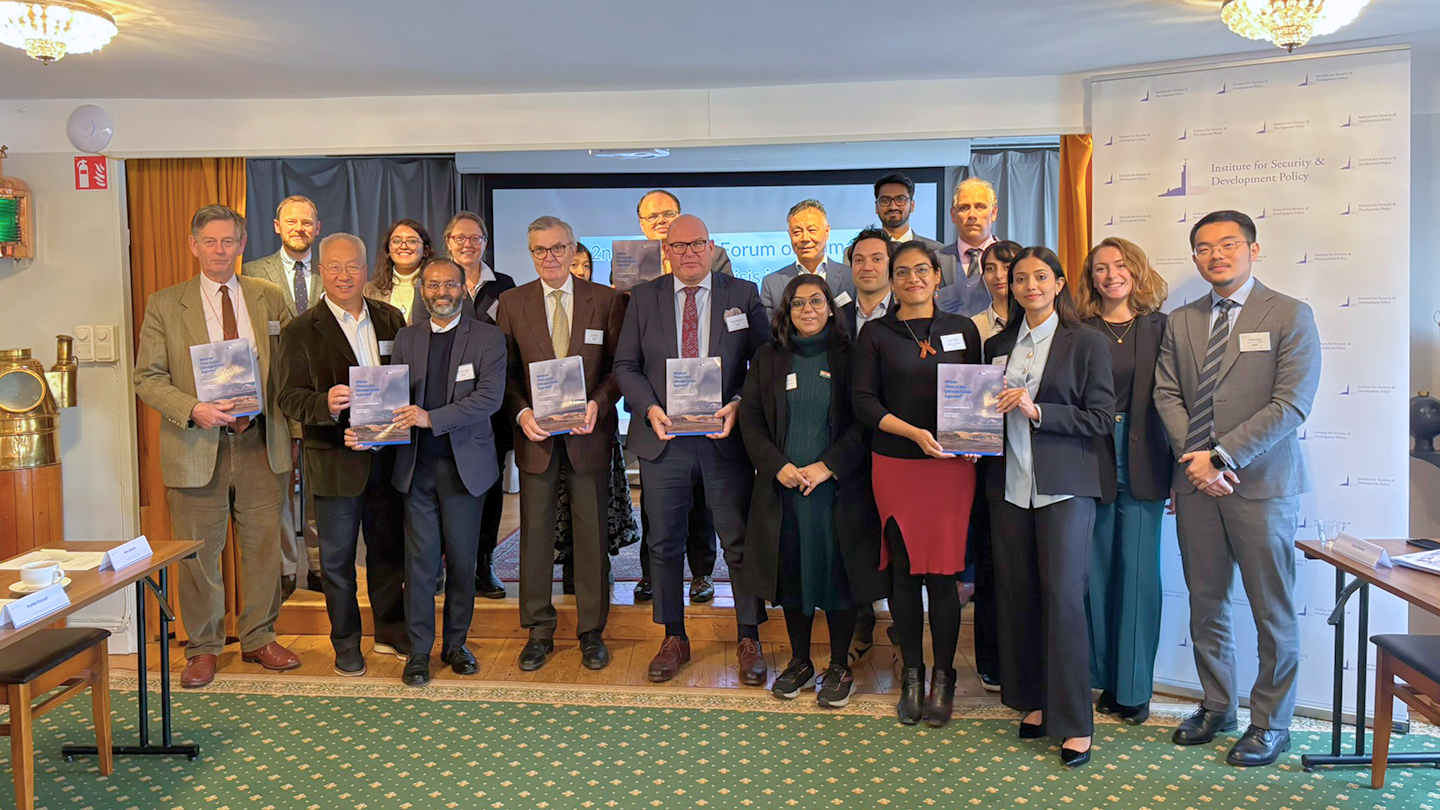On October 16, 2025, ORCA Director Eerishika Pankaj and Senior Research Associate Mr. Rahul Karan Reddy represented the Organisation for Research on China and Asia (ORCA) at the second Stockholm Himalaya Forum, organized by the Stockholm Centre for South Asian and Indo-Pacific Affairs (SCSA-IPA) at the Institute for Security and Development Policy (ISDP).
The Forum, led by Dr. Jagannath Panda, Head of SCSA-IPA at ISDP, convened distinguished scholars, policy experts, and practitioners from around the world to deliberate on the theme of global climate governance, with a particular focus on the Himalayan and Tibetan ecosystems. A key message that resonated throughout the Forum was the urgent need to recognise the Tibetan Plateau often referred to as the “Third Pole” as a central pillar of global climate governance. As the world prepares for COP30 in Belém, Brazil, participants highlighted that Tibet must feature prominently on the UNFCCC agenda, given its critical role in regulating the earth’s climate systems and sustaining Asia’s major river basins.
Director Eerishika Pankaj highlighted the growing restrictions on scientific access to Tibet, noting that the global community has increasingly come to depend on satellite data and state-mediated narratives. She emphasised that despite its immense ecological significance, Tibet remains a “climate blind spot” in international policy and research.
Mr. Rahul Karan Reddy presented an analysis of demographic transitions, developmental initiatives, and China’s policy interventions in Tibet, examining their far-reaching implications for South Asia’s transboundary water security, regional stability, and climate change resilience. His remarks reinforced the interconnectedness of environmental and geopolitical dynamics in the Himalayan region.
As the deliberations concluded, the Forum issued a compelling call to action: Tibet must not remain the missing chapter in global climate governance. Participants urged the international community to ensure that COP30 marks a turning point, one that moves Tibet from the margins of discussion to the heart of decision-making.
The second Stockholm Himalaya Forum also saw the launch of a special issue edited by Dr. Jagannath Panda, titled “Whither Tibet in the Climate Crisis Agenda?”. The publication features contributions from Ms. Eerishika Pankaj, who examines the Chinese Communist Party’s White Paper discourse on Tibet’s climate and Mr. Rahul Karan Reddy, who analyses the demographic and developmental drivers of environmental impact in Tibet.


